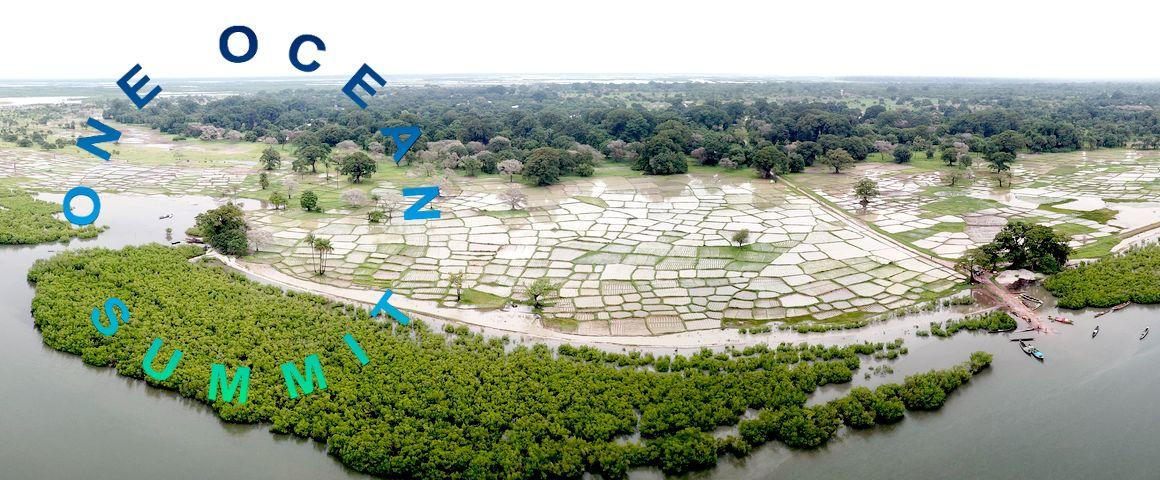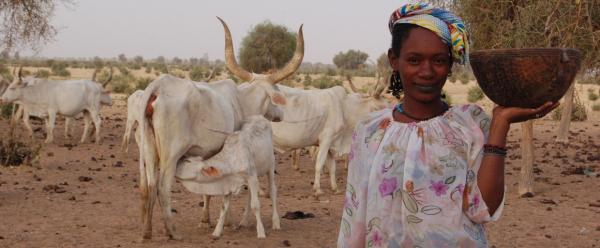Event 9 December 2025
- Home
- CIRAD news
- News
- One Ocean Summit
One Ocean Summit: for a shared commitment

One Ocean Summit, 9-11 février 2022 - Photo : E. Faye, Cirad
Oceans cover more than 70% of our planet. They regulate the main environmental equilibria, notably the climate. They also contain a wealth of as yet little-known biodiversity. However, they are also under growing pressure. Their preservation, and notably the preservation of their biodiversity, is key to maintaining balanced ecosystems worldwide.
For CIRAD CEO Elisabeth Claverie de Saint-Martin, "Oceans are one of more precious commons; they bind us to life itself. We all need to work together to preserve them and their biodiversity".
CIRAD is contributing to that aim by studying and rehabilitating mangroves. Mangroves are only found in the tropics, and are biodiversity hot spots. They act as refuges and nurseries for many marine animal species, and help to store carbon and regulate the climate. They also fix sediments in the soil and act as a filter, purifying water and allowing corals to develop out at sea.
Mangroves, which are veritable forests between land and sea, are flexible, robust ecosystems that can adapt rapidly to their environment.
It is now vital that we protect them better, notably by abandoning non-sustainable practices such as intensive fish and shrimp farming or clearing to produce timber.
CIRAD is therefore working to protect and restore such areas, notably through:
- The Mikoko project in Kenya
The Mikoko project, conducted in partnership with IRD and the Kenya Forest Service (KFS) between 2019 and 2021, served to build local capacity for research, education and training on mangroves. It also prompted a re-think of mangrove governance and greater consideration of local stakeholders.
A participatory digital knowledge-sharing platform was set up to further science, education and local development.
The Mikoko project was funded over two years (2019-2021) by the French Ministry for Europe and Foreign Affairs Fonds de solidarité pour les projets innovants (FSPI).
More about the Mikoko project
- The RESCuE project (Monitoring and REStoration for Sustainable Coastal Ecosystems) in Thailand
The RESCuE project served to assess the rehabilitation of mangrove forest stands. Using the computing power of Google Earth Engine, researchers were able to analyse and synthesize almost 30 years of Landsat satellite data. Combined with drone images, those analyses showed that 28 years after their rehabilitation, the mangroves in the study zone had reached almost the same height as natural stands.
The project was funded over three years (2018-2021) by the Southeast Asia – Europe Joint Funding Scheme for Research and Innovation.
See also: Biodiversity | A tool to assess mangrove restoration
More about the RESCuE project



























